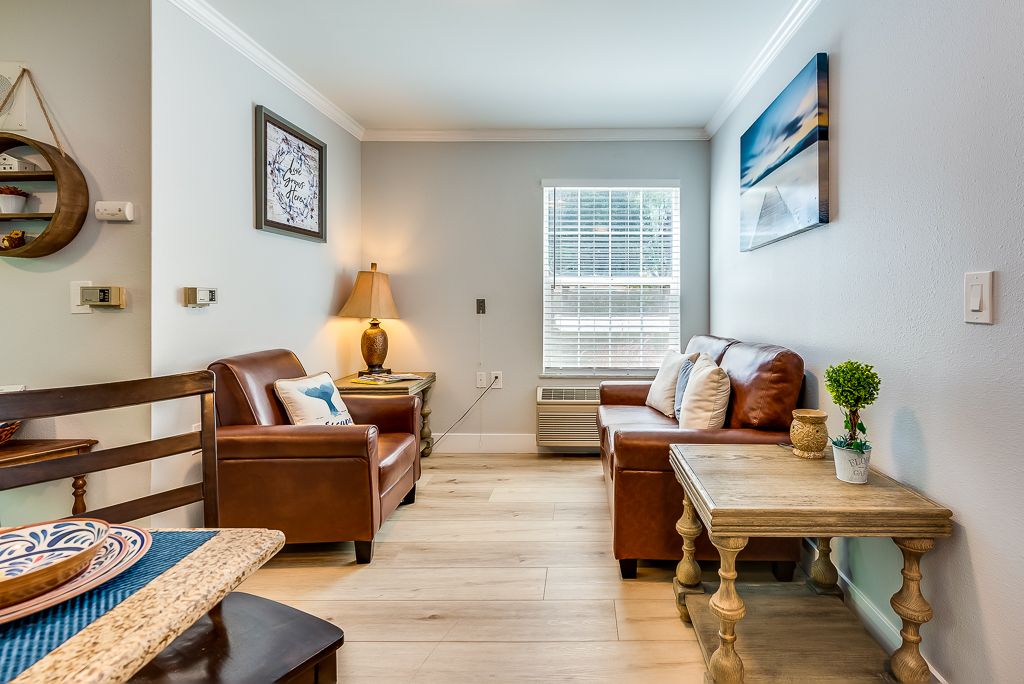Everything About Memory Care Providers: Why Tiny Memory Care Homes Are a Wonderful Selection
Memory care services play a necessary function in supporting individuals with Alzheimer's and mental deterioration. Little memory treatment homes stick out for their personalized strategy and intimate setting. With reduced staff-to-resident ratios, these homes cultivate more powerful connections and tailored care. Residents gain from improved social interactions and a risk-free environment. As family members check out options, understanding the one-of-a-kind benefits of little memory treatment homes ends up being important. What aspects should be thought about when choosing the best home?
Comprehending Memory Treatment Provider
While numerous may be familiar with basic senior treatment choices, recognizing memory care services is essential for family members encountering the obstacles of cognitive decline. Memory care specifically deals with individuals with problems such as Alzheimer's illness and other kinds of mental deterioration. These solutions supply an organized environment that concentrates on enhancing the lifestyle for homeowners through specialized treatment and support.Memory care facilities are designed to assure security and safety and security, typically including secured environments to protect against roaming. Trained employee are available all the time to assist with day-to-day tasks, medication administration, and personal care. Furthermore, memory treatment programs typically consist of cognitive stimulation activities, tailored to involve residents and advertise mental health. Family members can benefit from recognizing these services, as they enable notified decisions regarding their loved ones' treatment, guaranteeing that their particular demands and preferences are addressed in a compassionate and encouraging manner.
The Advantages of Little Memory Care Homes
Tiny memory care homes supply distinct advantages that can greatly improve the quality of life for residents with cognitive problems. One significant benefit is the intimate setting, which permits customized communications amongst team and locals. This smaller setup fosters meaningful relationships, decreasing sensations of seclusion and stress and anxiety typically experienced by people with memory issues.Additionally, the reduced staff-to-resident proportion in tiny memory care homes enables caregivers to offer even more attentive supervision and assistance. This strategy not only improves safety and security yet likewise promotes a complacency for the residents.Moreover, little memory care homes can adapt rapidly to the distinct requirements and choices of each citizen, allowing for an extra homey environment. Such an environment can encourage social engagement and engagement in activities, inevitably improving the day-to-day experiences of those coping with cognitive disabilities.
Personalized Care Program for Citizens
Personalized treatment plans are vital in memory care homes, as they satisfy the one-of-a-kind demands and choices of each local. These strategies start with comprehensive assessments performed by proficient professionals, who examine cognitive abilities, case history, and personal rate of interests. This customized strategy warranties that care is not only effective however also considerate of each person's self-respect and autonomy.Moreover, customized treatment plans are versatile, enabling adjustments as residents' demands develop gradually. This flexibility promotes a complacency and knowledge, which is crucial for people coping with memory obstacles. Caregivers are educated to carry out these strategies constantly, providing assistance that lines up with the homeowners' routines and preferences.Ultimately, customized treatment strategies boost the lifestyle for homeowners by promoting independence, well-being, and interaction, making them a fundamental aspect of memory treatment solutions in tiny memory care homes.
Creating a Home-Like Environment
Developing a home-like environment is vital for promoting comfort and knowledge in memory treatment settings, as it greatly impacts residents' psychological wellness. Tiny memory care homes usually focus on individualized touches, such as warm shade combinations, family images, and familiar furnishings setups, which help citizens feel extra secure. Incorporating elements evocative a standard home, like relaxing space and communal locations, encourages a feeling of belonging.Moreover, using natural light and exterior rooms can enhance the atmosphere, advertising relaxation and harmony. Team members play a significant function in keeping this environment by engaging with citizens in a compassionate fashion, treating them like family. Routine tasks, such as cooking or gardening, can likewise add to a home-like feel, using possibilities for locals to get involved in significant experiences. On the whole, creating a nurturing atmosphere sustains cognitive feature and psychological security, making it a crucial element of memory care services.
Boosted Social Interaction and Community
Improved social communication and community are vital elements of memory care services. By promoting customized social interaction and producing a family-like ambience, these services promote meaningful connections among locals. Team occasions and tasks better urge engagement, helping individuals really feel much more consisted of and sustained.
Customized Social Involvement
While social interaction is vital for general well-being, lots of individuals with memory disabilities commonly battle to involve meaningfully with others. Personalized social interaction in memory care homes addresses this obstacle by producing tailored activities that accommodate locals' unique passions and capacities. By concentrating on private preferences, caregivers can cultivate links that reverberate deeply with each individual. Activities such as art therapy, songs sessions, and led conversations promote cognitive excitement and psychological expression. Additionally, small team setups motivate camaraderie and permit even more intimate interactions, boosting feelings of belonging. This strategy not only deals with sensations of isolation but also encourages locals to maintain a feeling of identification, inevitably contributing to boosted mental wellness and lifestyle.
Family-like Ambience
In a memory care setup, fostering a family-like environment substantially improves social communication and develops a feeling of neighborhood among homeowners. Smaller memory treatment homes often focus on intimate environments, permitting citizens to create closer links with one another and team members. This nurturing environment promotes depend on, which is essential for individuals with memory problems. Residents are more probable to talk and share experiences, creating a supportive network that reduces feelings of solitude. The knowledge of shared rooms and routines contributes to a feeling of belonging, further urging social communication (personalized memory care). In such settings, psychological bonds prosper, leading to enhanced overall well-being and a better of life for citizens as they navigate their everyday experiences with each other
Team Activities and Occasions

Safety and Safety Functions in Small Residences
Many small homes designed for memory treatment incorporate crucial security and safety functions to guarantee the health of citizens. These homes frequently use protected entrance and exit indicate avoid wandering, an usual worry among individuals i thought about this with memory disabilities. Additionally, security systems and alarm mechanisms boost tracking, making sure that staff can quickly react to any type of unusual activities.Interior formats are customized for safety and security, with minimized threats such as sharp corners and clutter-free pathways. Handrails and non-slip flooring are typically mounted to minimize the threat of drops. Personnel are trained in emergency situation procedures, ensuring they are gotten ready for numerous situations.Moreover, individualized care strategies may include analysis of specific security needs, supplying customized services for each citizen. On the whole, these safety and security and safety and security attributes create a caring setting where residents can prosper while keeping their dignity and freedom.
Exactly how to Pick the Right Memory Treatment Home
How can family members guarantee they pick one of the most suitable memory treatment home for their enjoyed ones? The choice requires mindful consideration of several aspects. First, households should examine the center's team credentials and training, ensuring that caregivers are experienced in managing memory-related conditions. Next off, it's essential to assess the home's environment, focusing on safety features and whether it fosters a feeling of community and belonging. Going to the facility can provide understanding right into daily activities and the social environment, which are essential for mental stimulation and psychological well-being. In addition, families ought to make inquiries about the care plans provided, guaranteeing they are customized to individual needs. Thinking about the home's area and ease of access for family check outs can add to a smoother change. By resolving these facets, families can make an enlightened decision that prioritizes their loved one's convenience and lifestyle in a memory care setup.
Frequently Asked Concerns
What Certifications Should Staff Members in Memory Care Homes Have?
Team member in memory care homes should possess pertinent accreditations, experience in dementia treatment, strong communication skills, and concern. Recurring training in behavioral administration and therapeutic treatments enhances their capability to sustain residents successfully.
Exactly How Do Memory Treatment Provider Differ From Conventional Assisted Living?
Memory care solutions focus particularly on individuals with memory impairments, offering specific assistance and organized settings. On the other hand, standard assisted living offers basic support with everyday tasks, lacking the tailored method needed for those with cognitive difficulties.
What Kinds of Tasks Are Used in Memory Care Residences?
Memory care homes normally offer a range of activities created to involve homeowners. Common options include art therapy, songs sessions, cognitive games, workouts, gardening, and gatherings, all aimed at improving well-being and cognitive feature.
Can Homeowners Bring Their Own Valuables to Memory Treatment Homes?
Homeowners can normally bring their own personal belongings to memory treatment homes, permitting them to individualize their home - personalized memory care. This method helps create an acquainted useful content environment, promoting convenience and a sense of identification for the individuals

How Are Relative Involved in the Care Process?
Member of the family play a crucial role in the care procedure, usually taking part in decision-making, participating in treatment meetings, and supplying emotional assistance. Their involvement promotes a collective setting, boosting the homeowner's total well-being and high quality of life. While numerous may be familiar with basic elderly treatment options, understanding memory care solutions is important for households encountering the difficulties of cognitive decline. These solutions offer a structured setting that concentrates on improving the top quality of life for locals via specialized care and support.Memory care centers are made to assure safety and safety and security, frequently featuring safeguarded atmospheres to protect against wandering. Individualized treatment plans are crucial in memory treatment homes, as they cater to the special demands and choices of each homeowner. Personnel members in memory care homes need to possess relevant qualifications, experience in dementia treatment, strong interaction abilities, and concern. Memory treatment services focus particularly on individuals with memory disabilities, providing customized support and organized environments.